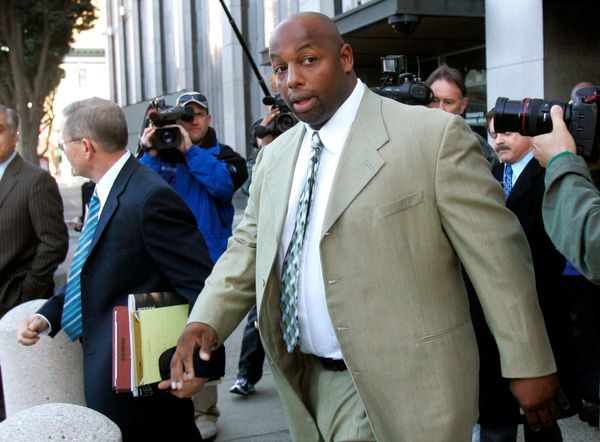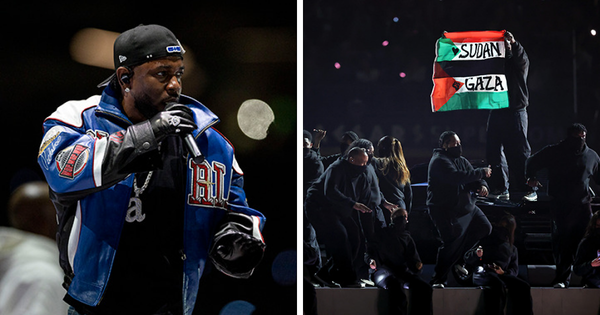
Boycott bounced, bruised and bowled
“Even on the black and white/we could tell the ball/was a wicked duppy / it moved furniture/ spat and reared at the batsman’s /throat shot past his chest/like a comet.” To Mimic Magic, by Roger Bonair-Agard
The first thing to know about the fastest, fiercest, finest over ever bowled is that almost everyone agrees it was delivered by Michael Holding to Geoffrey Boycott at Bridgetown, on Saturday 14 March 1981. The second thing is that Holding isn’t one of them. He doesn’t even think it was the fastest, fiercest, or finest he bowled in his career, or perhaps even in that Test match. It was plenty sharp. The first ball came on like a drop of hot fat, and scalded Boycott’s hand as it flew through to second slip. The second, third, fourth, and fifth peppered his wicket, thigh guard, chest and throat. And then the sixth ripped his off stump out of the ground and sent it spinning away end-over-end. But still, “the greatest over? Mercy,” Holding once wrote, “The fastest? No. I had bowled quicker.”
In his book No Holding Back, Holding says “it’s difficult to categorise overs in terms of quality over such a long career”. But he has hazy recollections of bowling faster than that in a match at the Waca, a Test against Australia on the 84-85 tour, when he did for Rick Darling and Greg Chappell in a single over. Only, don’t look for the scorecard, because it doesn’t exist. Darling played his last Test in 1979, Chappell his at the beginning of 84, 10 months before the start of the tour Holding is thinking of. But he did dismiss them both in a one-day game in Perth in December ’81. And he was quick that day. So fast he bowled Darling behind his legs, hopping across the line to off-stump, and had Chappell flapping, posthumously late on a hook, caught at backward square leg.
Back in the match at Bridgetown, later on that very same afternoon, Holding dismissed Ian Botham and David Bairstow in the same over, “and in the second innings I got Boycott again from my third ball. That was a special dismissal because I managed to get the ball to leap off a length and take his glove. The very next ball I bowled Mike Gatting.” And, he says, “two wickets in one over was better than one, surely?” But a generation later, even Holding can’t recall exactly when it was he did Darling and Chappell, and nobody much talks about the overs that accounted for Botham and Bairstow or Gatting. But the six deliveries to Boycott are fixed in the collective memory, written up in books and recounted in countless interviews in print, film and radio.
Holding’s over was listed at No12 in Cricinfo’s 50 Magic Moments and Boycott’s lost off stump included in the History of Cricket in 100 Objects. Patrick Eager, who took a typically brilliant photo of the aftermath, picked the sixth as the fastest ball he ever saw. The over doesn’t just have its own section on Holding’s website, it has its own website. It also inspired that fine poem by Roger Bonair-Agard, in which he recalls watching it as a little kid, inching his chair closer to the TV screen, then running out in the playground to take turns with his friends “practising the interminable run-up/the willow of a body gathering/speed and purpose like a train/head ever so slightly turning/side to side/the soft landing of the feet/ball cupped like a co-conspirator in a bent wrist”.
That year’s Wisden Almanack opted for a rather more sober description. “In three overs their own score stood at 11 for two and, though there was temporary resistance from the middle order, the innings never recovered against the four fast bowlers, of whom Holding was at his fastest.” As for Boycott, he seemed to be oblivious to it all, too. His first reaction was anger at how much grass had been left on the pitch. “For the first time in my life, I can look at a scoreboard with a duck against my name and not feel a profound sense of failure,” he wrote in his tour diary, “it had damn-all to do with Test cricket as I understand it.” Years later, he decided that it was “just one of those things”. What mattered most “was that I made 0 and 1 in that Test match, but a week later we played in Antigua and I made a century.”
It seems to have been Frank Keating, in his book Another Bloody Day in Paradise, who first spun the moment into a mythical bit of cricket. “The hateful half-dozen had been orchestrated into one gigantic crescendo,” he wrote. “Boycott looked round, then as the din assailed his ears, his mouth gaped and he tottered as if he’d seen the Devil himself. Then slowly he walked away, erect and brave and beaten.” England’s tour manager, Ken Barrington, died of a heart attack that same night, so over time the events of the day may have crystallised in the minds of everyone there.
And there was a time, too, when Holding himself agreed that something special had gone on. In his book Whispering Death he says that Clive Lloyd had asked him to open the bowling ahead of Andy Roberts. Holding demurred. Instead he and Lloyd agreed he would bowl a short spell, “flat out” into the wind, then rest and replace Roberts at the other end. “Everything suddenly felt right, my rhythm, my delivery stride, and my action,” Holding wrote, “The world felt great, the ground softer, the body taller, the muscles stronger with the atmosphere very sweet.” He was in the zone. “For this moment in my life I was attuned to everything in a very surreal way. Time hung in the air and I could feel that I had bowled five of the very best balls I could at a lightening speed.” He was “a hypnotist priest” writes Bonair-Agard, “doling out a fiery eucharist.”
These days Holding calls it the “most talked about over”. Which is a label everyone can agree on. The story will last long after everyone who can remember how it actually went down has gone.
A friend and colleague gone too soon
This week began in the worst way. Our Guardian colleague Dan Lucas died on Sunday, suddenly, shockingly. If you’ve read any of the Guardian’s cricket and rugby coverage in the last few years you’ll have read Dan’s work, and know for yourself how sweet and talented he was. I first met him in June 2013, when he wrote to ask whether there was any work going at the Guardian. He had been emailing in contributions to our over-by-over cricket commentaries for a while already, and wanted to have a go writing them. A couple of months later, I logged on to the site and there he was, at work on his first match, an ODI between England and Australia at Edgbaston. Which, of course, was rained-off. So, in the best spirit of over-by-over cricket, Dan spent the next few hours chatting to the few remaining readers about poetry, Bruce Springsteen, and Ashley Giles’ new hairdo. And you knew then that he was going to be OK. Because the OBO has never just been about the cricket, but all the other little things that cross your mind when you’re watching a match. Writing it always reminded me of spending a day at a Test, with a seat in a packed grandstand chatting to old friends and friendly strangers. There’s an empty space on the terraces now, always kept free for our pal Dan, rest in peace.
• This is an extract taken from the Spin, the Guardian’s weekly cricket email. To subscribe just visit this page and follow the instructions.







